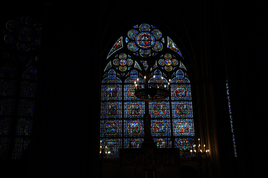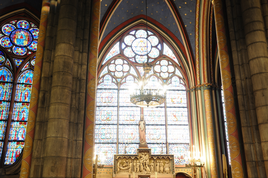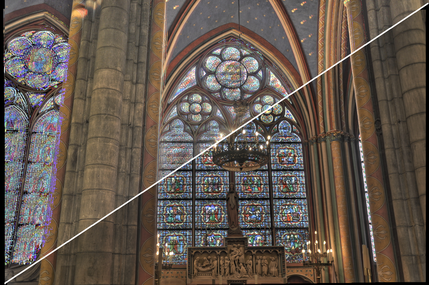
Welcome to the homepage of the lecture
Advanced Image Analysis
Winter Term 2020
Home
About Us
People
Teaching
Research
Publications
Awards
Links
Contact
Internal

Advanced Image Analysis
Lecturer:
Dr. Pascal Peter
Winter Term 2020
Lecture (2h) with exercises (2h)
6 credit points
Lectures: Digital Video Lectures with Online Q&A Sessions
Tuesday, 8:30-10 s.t.
First Q&A: Tuesday, November 3, 2020
Tutor:
Jón Arnar Tómasson
Online Tutorials: Friday 14-16 c.t
First Tutorial: Friday, November 13, 2020
Announcements –
Description –
Entrance requirements –
Tutorials –
Exams
Lecture notes/Assignments –
References
10/11/2020 Registration is now closed.
02/10/2020 In order to protect your health and inhibit the spread of Sars-Cov2,
this year's iteration of AIA will be fully digital. We will use Microsoft
Teams for communication and distributing lecture content.
Regular teaching will begin on Tuesday, November 3, 2020,
but you can already register for the course
and watch the introduction video.
02/10/2020 Website is online
Registration for this lecture was open until Nov 10. Keep in mind that in most courses of studies, you also have to register via the HISPOS system of the Saarland University
In this lecture, we will discuss advanced topics in the fields of image processing
and computer vision. Most of the presented methods fuse the information from several
images in order to produce an enhanced composite image. Examples for such techniques
are super-resolution, high dynamic range (HDR) imaging, tone mapping and
gradient domain techniques.
Example: Freehand High Dynamic Range Imaging



|

|
| Exposure series | Tone mapped HDR reconstruction without and with alignment |
Requires undergraduate knowledge in mathematics (e.g. ''Mathematik für Informatiker I-III''), and elementary C knowledge. Basic knowledge in image processing and computer vision is recommendable. The lectures and tutorials will be given in English.
There are both practical and theoretical assignments every week. They will be discussed in online tutorial sessions and written solutions will be available. Exam admission requires both regular submission of homework and tutorial attendance. Details can be found in the introductory lecture.
If you have questions concerning the tutorials, please do not hesitate to contact Pascal Peter.
There will be two closed book written exams:
The first written exam will take place on Wednesday, February 10, 2021
from 2:00 to 4:00 pm in Building E2.2, Günter Hotz Lecture Theatre.
The second written exam will take place on Monday, March 22, 2021
from 2:00 to 4:00 pm in Building E2.2, Günter Hotz Lecture Theatre.
Please note that due to the dynamics of the Sars-Cov2 pandemic, changes
to the exam schedule or mode might be necessary.
You can find the detailed rules for our exams in
the self test assignment
in the Teams file repository.
You can participate in both exams, and the better grades counts.
Please remember that you have to register online for the exam
in the HISPOS system of the Saarland University.
If you cannot attend the exam, contact Pascal Peter as early as possible.
In case you have proof that you cannot take part for medical reasons or you
have another exam on the same day, we can offer you an oral exam as a replacement.
Note that we need written proof (e.g. a certificate from a physician/Krankenschein)
for the exact date of the exam.
Lecture content in form of videos, slides, and assignments are available for
download via Microsoft Teams. Access will be granted after
registration. Note that the initial registration requires manual confirmation and
can thus be delayed a bit.
The assignments and the source code needed for the programming assignments will be
provided here during the semester.
-
There is no specific book that covers the complete content of this class.
Many lectures will be based on articles from journals and conferences.
However, the recent book of R. Szeliski covers some of the topics and
additionally summarises most of the intensively studied areas of
computer vision research:
-
R. Szeliski: Computer Vision: Algorithms and Applications.
ISBN: 978-1-84882-934-3, Springer, Berlin, 2011.
Note: You can download a PDF version of the book here.
Further references will be given during the lecture.
MIA Group
©2001-2023
The author is not
responsible for
the content of
external pages.
Imprint -
Data protection